Complete your selection
Willow Bark Extract is an analgesic and cardioprotective supplement made from white willow bark. It’s a gentler, safer and longer-lasting alternative to the drug aspirin. Over the past few months, it has been attracting extraordinary interest for its clinically proven synergistic power, naturally high salicin content and durable effects on chronic pain and circulation.
What’s the reason for this phenomenal rise in interest in white willow extract?
The use of willow bark for medicinal purposes spans centuries and civilisations. From Imperial China to First Nation America, Ancient Greece to medieval Europe, willow bark has been widely used to soothe pain and bring down fever (1).
In 1828, Pierre-Joseph Leroux, a French pharmacist, thought he had identified the active substance behind these effects: salicin. It was quickly discovered that this substance was converted in the body into salicylic acid, a compound with clear analgesic and antipyretic properties. There then followed a frantic race to be the first laboratory to synthesise the molecule. It was a German chemist working for the Bayer group who succeeded in doing so, producing for the first time a derivative of salicylic acid (acetylsalicylic acid) without using willow bark. Named ‘aspirin’, the drug would go on to enjoy rapid success, consigning willow bark to oblivion … for almost 120 years.
But for some time now, white willow extract has been experiencing a surprising and extraordinary comeback. Why so? In actual fact, Pierre-Joseph Leroux had made a mistake. While salicin is indeed an active compound in willow bark, it is by no means the only one! There are dozens of other natural molecules that act synergistically and complement the effect of salicin (2-3): proanthocyanidins (extensively metabolised by our gut flora), anti-inflammatory flavanones (naringenin, eriodictyol) (4-5), flavonoids (dihydroquercetin), flavonols (catechin) and polyphenols (caffeic, ferulic, cinnamic, vanillic, hydroxybenzoic and coumaric acids). And it’s the combination of these natural compounds that is responsible both for the anti-inflammatory effects of white willow extract, and its antioxidant, antiseptic, and immune-stimulating effects (6). A number of studies have shown blood levels of salicin to be too low to account exclusively for the analgesic effects of this extract (7-8).
In isolating one of these natural compounds, and offering it in an already-metabolised synthetic form, Bayer undoubtedly produced an effective painkiller, but it is one which is associated with significant side-effects. Its unique mechanism of action requires enormous amounts of salicylic acid which in the long term can damage the body (particularly in terms of gastrointestinal bleeding). In contrast, willow bark’s efficacy comes from a range of anti-inflammatory mechanisms of action and does not directly expose the digestive tract to acetylsalicylic acid. Willow bark extract thus contains a dose of salicylic acid which is potentially 10 times lower than that of standard aspirin tablets, but with physiologically comparable effects.
What are the main benefits of willow bark extract?
Willow Bark Extract offers anti-inflammatory, analgesic and cardioprotective effects. It is particularly good for:
- Those suffering from acute or chronic pain (headaches, back pain, arthritic pain, menstrual cramps, ‘flu …). Scientific research has clearly demonstrated white willow’s efficacy in relieving chronic and acute pain. A summary published in 2007 concluded that white willow was effective for lumbar pain (13) when taken for around four weeks. Studies similarly show its effectiveness for arthritic pain, particularly in the knee and hip (14-15). The authors point out that its effects take longer to be felt than those of anti-inflammatory drugs, but that they produce far fewer adverse side-effects. In 2009, a research team drawing on three major clinical studies showed white willow extract to be effective against muscle pain (16).
- Those aged over 50, for reducing the risk of cardiovascular problems, combatting oxidative stress and improving general health. Low-dose aspirin (or ‘baby aspirin’) has for many years been recommended for preventing cardiovascular disease and stroke in those over 50, especially individuals with several risk factors. The action of salicylic acid prevents blood clots from forming and thus reduces the risk of a cardiovascular event. The United States Preventive Services Task Force (USPSTF), an independent group of American researchers, confirmed this anew in 2016: the benefits they measured show that for 10,000 men presenting with a 10% 10-year cardiovascular risk, aspirin prevents 225 heart attacks, 84 strokes. That’s a gain of more than 300 years of life. For a few years now, however, some researchers have held the view that the benefits of aspirin may not always outweigh its adverse side effects (particularly the increased risk of bleeding). Gentler and more comprehensive, extract of willow bark thus appears to be the perfect alternative to aspirin for those who want to reduce their likelihood of a cardiovascular event without exposing themselves to other health risks.
How does willow bark extract differ from the drug aspirin (acetylsalicylic acid)?
There are three main differences between the two.
- Willow bark acts more slowly than acetylsalicylic acid in relieving pain but its effect is sustained over the long term.
- Willow bark extract does not cause the unwelcome side effects (irritation of stomach mucosa and inhibition of coagulation) associated with acetylsalicylic acid. The plant is metabolised very differently from its synthetic counterpart (9). This characteristic lends itself well to multi-target therapy, a new therapeutic approach which focuses on exerting physiological effects by means of a combination of targets rather than the action of a single, high-dose molecule. Scientists have observed that this type of therapy has been able to reduce and even eliminate side-effects because of the lower individual dose of the active compounds (10-12).
- Willow bark extract also offers antioxidant, anti-infectious, immune-stimulant and invigorating properties.
What are white willow extract’s mechanisms of action?
Salicin’s mechanism of action remained a mystery for many years. It was only in 1971 that John Vane and his team at the Wellcome Foundation showed that it prevented the action of certain enzymes - COX-1 and COX-2 - involved in metabolising arachidonic acid. These enzymes promote the first stage in the formation of a group of eicosanoids - signalling molecules involved in inflammatory processes.
By blocking the action of these COX enzymes, salicin lowers the production of a number of inflammatory mediators which are responsible for pain, swelling and other symptoms associated with inflammatory processes. Inhibition of COX-1 also reduces levels of thromboxane, a vasoconstrictor which leads to increased blood pressure. It is this mechanism of action which explains the use of low-dose aspirin for lowering the risk of heart attack (17). A number of studies have shown that salicylic acid also interacts with RNA and coenzyme A, opening up a potential application in the area of oncology (18).
All the other compounds in willow extract have complex and complementary cell mechanisms, indirectly inhibiting the pro-inflammatory cytokines TNF-alpha and interleukin-6, inhibiting translocation of the protein NF-kB (19), and inactivating transcription of certain genes associated with inflammation.
What is in Willow Bark Extract
Any questions?
Our team of nutrition experts and scientists has the answers.
The salicin and flavonoids present in white willow first and foremost benefit the plant itself. They improve its resistance to pathogens and insects which feed off its sap (phloem). More surprisingly, salicin also acts as a communicator between willow trees. When one tree is attacked by a virus, salicin is converted into methyl salicylate, an organic compound which is dispersed into the atmosphere and protects other plants from the danger to which it is exposed. It is a genuine signalling substance capable of activating defence genes in the tissues of neighbouring plants (20).
What’s more, because it contains anti-inflammatory compounds able to relieve pain in the herbivores consuming its leaves, shoots and bark, the plant is attractive to animals, thus increasing the dispersal of its seeds. This may therefore be an evolutionary strategy designed to increase its expansion and survival.
An appropriate dose is 1-2 capsules taken with meals. For chronic pain and cardiovascular health, it should be continued for at least 4-6 weeks in order to fully benefit from its effects. Willow Bark Extract can be combined with other supplements available to buy at Supersmart such as Triple Protect for even greater cardiovascular benefits, with Palmitoylethanolamide (PEA) for enhanced anti-inflammatory effects, and with Ubiquinol for a synergistic antioxidant action.
Note: researchers have demonstrated a powerful synergy between the phytochemical compounds in coffee, which can prevent lipid peroxidation, and willow bark extract, indicating a protective effect for cell membrane phospholipids (23). Phosphatidylcholine (PC) and omega-3 may, for their part, help to maintain the stability and fluidity of cell membranes that have potentially been damaged by long-term use of aspirin (24). It has also been reported that the same conversion into salicylic acid occurs with meadowsweet (Spiraea Ulmaria).
With the introduction of Willow Bark Extract, it is now possible to obtain the benefits of a completely natural, plant-source aspirin, the properties of which are almost identical to those of the chemically-synthesised product.
Buy Willow Bark Extract to support cardiovascular health.
Unlike aspirin, willow bark has been shown in clinical trials to have almost no adverse side-effects (21). In particular it has a far weaker anti-platelet effect. Nevertheless, those suffering from gastritis, coagulation problems, haemophilia, kidney disorders or stomach ulcers should seek medical advice before taking willow extract.
In addition, those with an aspirin allergy or hypersensitivity could well find the same problem with willow bark.
It’s estimated that around 80% of the salicin in willow bark extract is absorbed following ingestion. It is then metabolised into saligenin by gut flora, and subsequently converted into salicylic acid (22). It is thus salicin which comes into contact with the digestive tract and not salicylic acid as is the case with aspirin.
This product’s capsules are made of pullulan, a natural polysaccharide obtained by fermenting tapioca or corn. Pullulan contains no animal ingredients and provides an excellent barrier to oxygen, helping to preserve the integrity of the capsule’s ingredients. It is also an eco-friendly alternative to synthetic materials.
october 10 2024
relieves me from pain
september 11 2020
Good product
october 23 2025
Non posso esprimere un parere fino a quando non vderò le analisi.
I cannot express an opinion until I see the analyses.
 see the translation
Translated by SuperSmart - see the original
see the translation
Translated by SuperSmart - see the original
october 12 2025
Soulage toutes les douleurs rapidement efficacement et sans aucun effet secondaire.
Relieves all pain quickly, effectively, and without any side effects.
 see the translation
Translated by SuperSmart - see the original
see the translation
Translated by SuperSmart - see the original
may 28 2025
Muy contenta no me a producido ninguna reacción gastrointestinal, como en el caso del Adiro "aspirina infantil".Me lo tomo para fluidificar la sangre para prevenir posibles coágulos, por tener lípidos elevados. No tengo pruebas para poder evaluar, pero si que las piernas me las noto mas ligeras por el poco tiempo que lo llevo consumiendo. Gracias Super Smart
Very happy, it hasn't caused me any gastrointestinal reaction, unlike Adiro "children's aspirin." I take it to thin the blood to prevent possible clots, as I have elevated lipids. I don't have tests to evaluate, but I do feel my legs are lighter in the short time I've been taking it. Thank you Super Smart.
 see the translation
Translated by SuperSmart - see the original
see the translation
Translated by SuperSmart - see the original
Need help?
You may also like

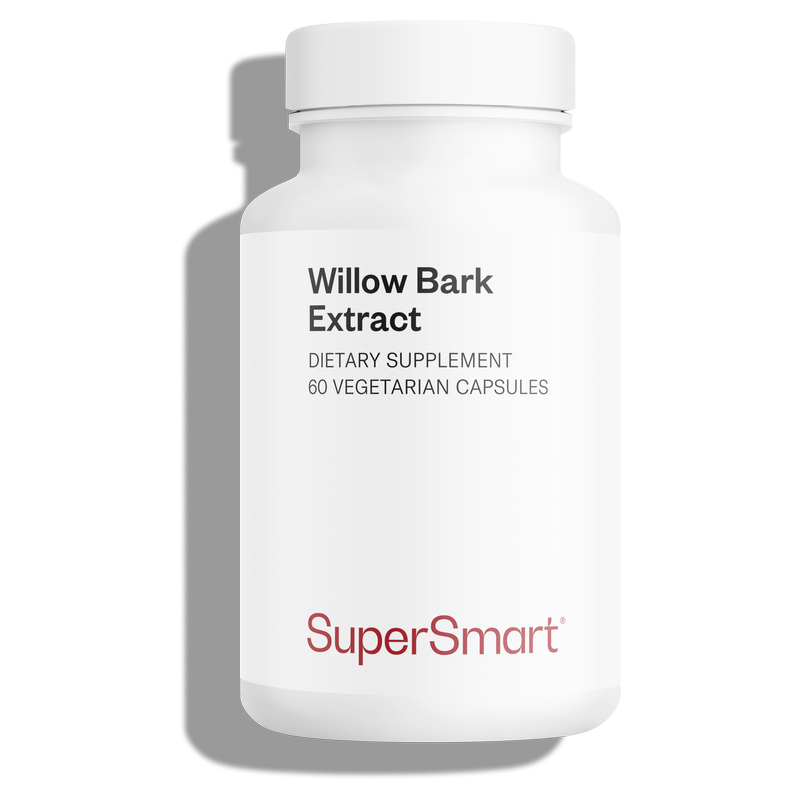
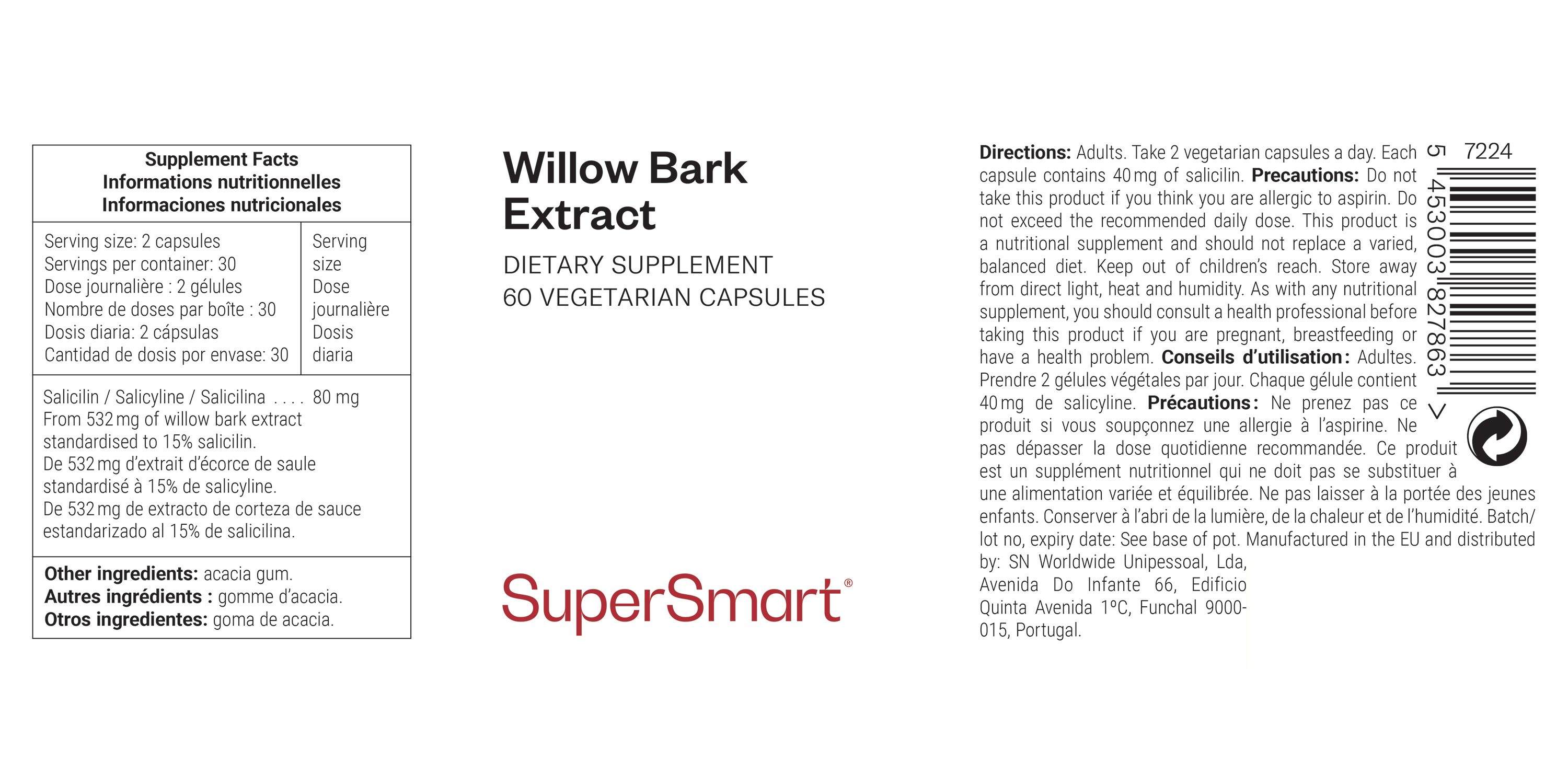

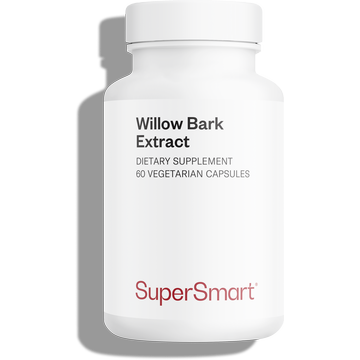
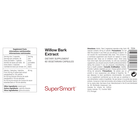


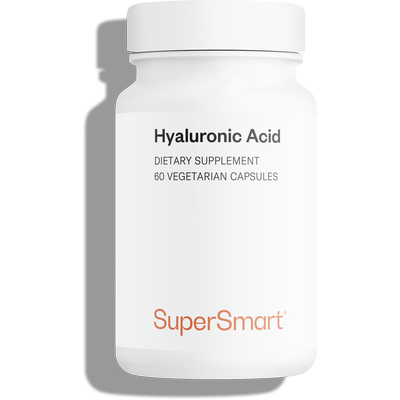
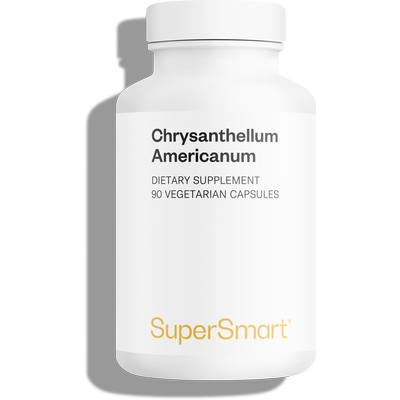
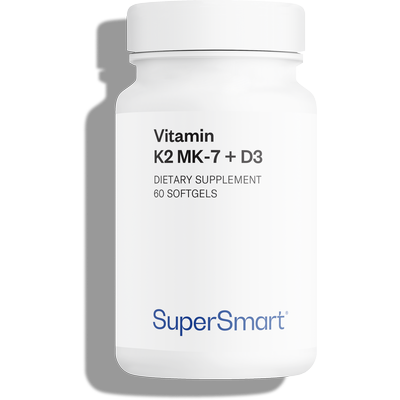
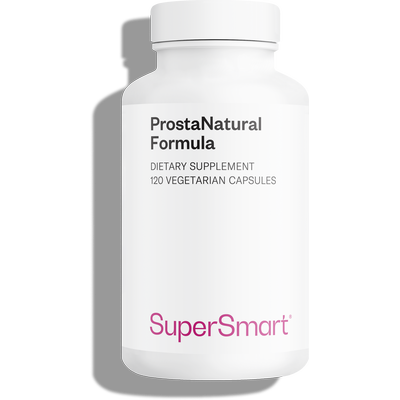
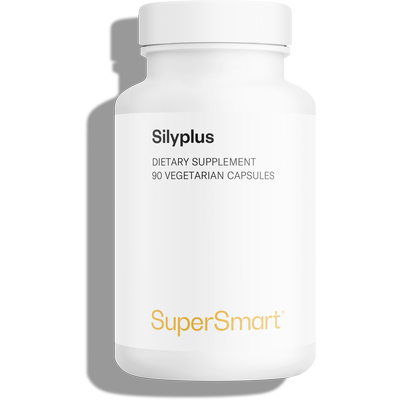
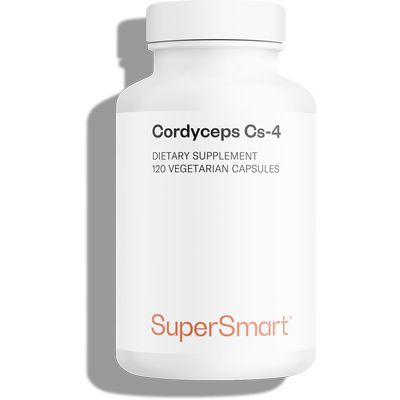
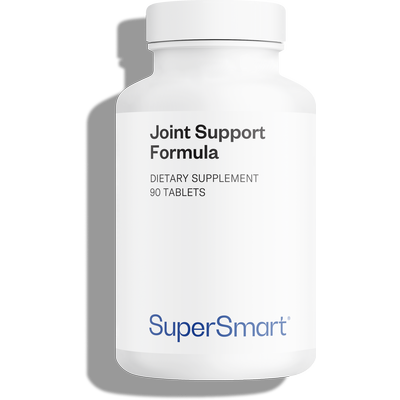
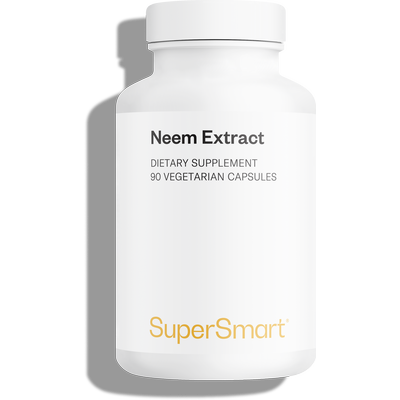
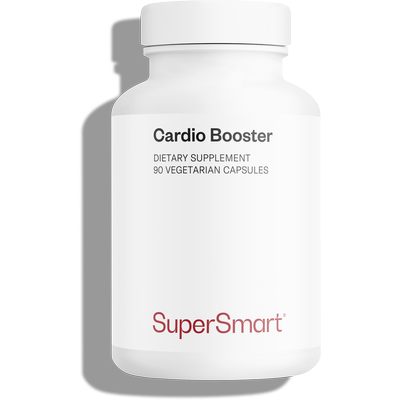
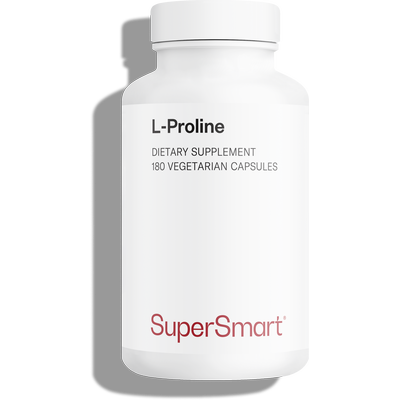
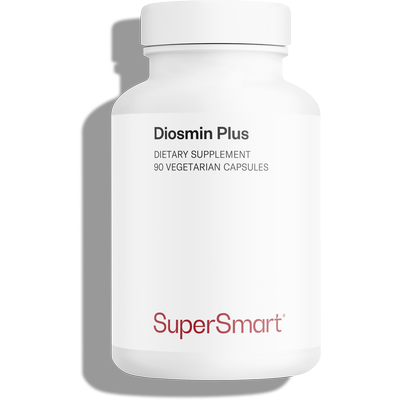
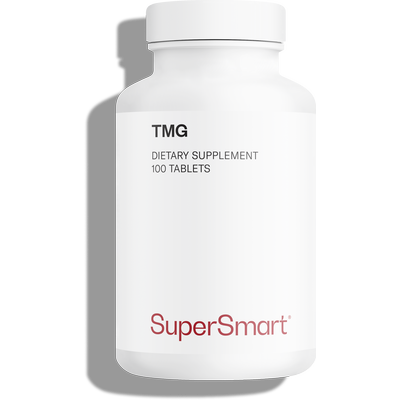
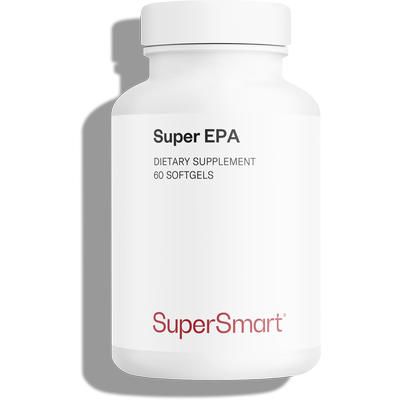
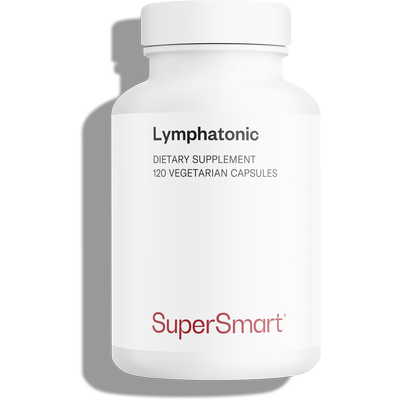
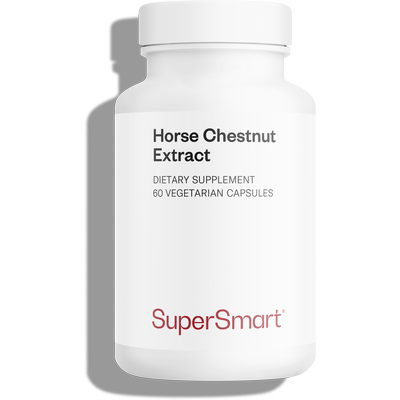
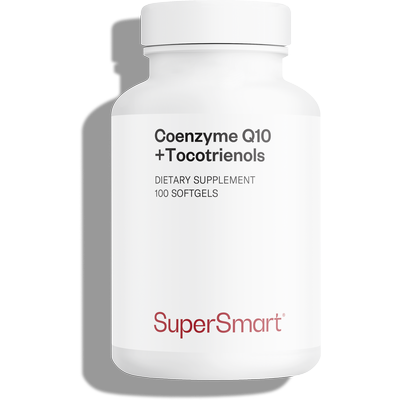
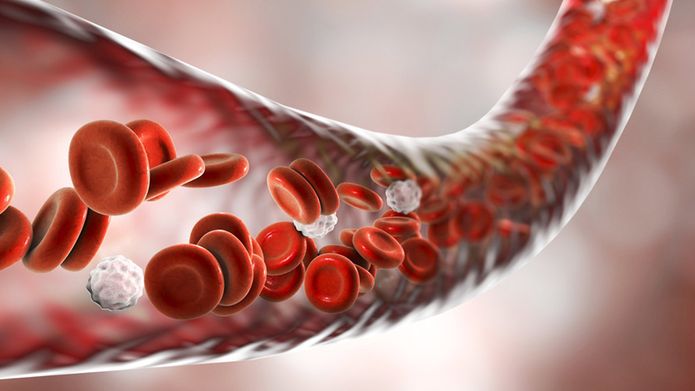
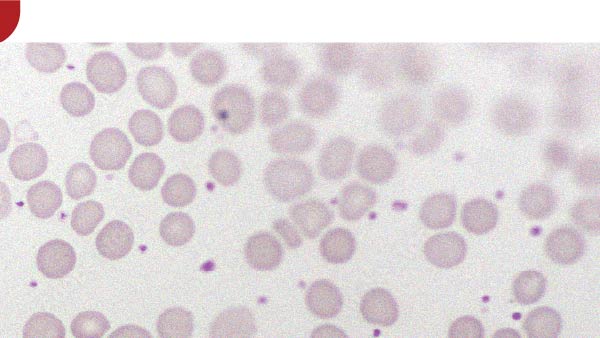

Bonjour,
Merci pour votre retour concernant le produit Willow Bark Extract.
Comme pour tout complément alimentaire, l'efficacité peut varier selon les individus et les situations. Parfois, un ajustement de la durée de prise ou du dosage peut être nécessaire pour observer des résultats. Je vous recommande de continuer la prise sur une période plus longue pour voir si les effets se manifestent progressivement.
Si vous avez besoin de conseils supplémentaires ou si vous souhaitez envisager un autre produit, n'hésitez pas à nous contacter. Nous sommes là pour vous aider à trouver ce qui correspond le mieux à vos attentes.
Cordialement,
Gaëlle
Service Client Supersmart